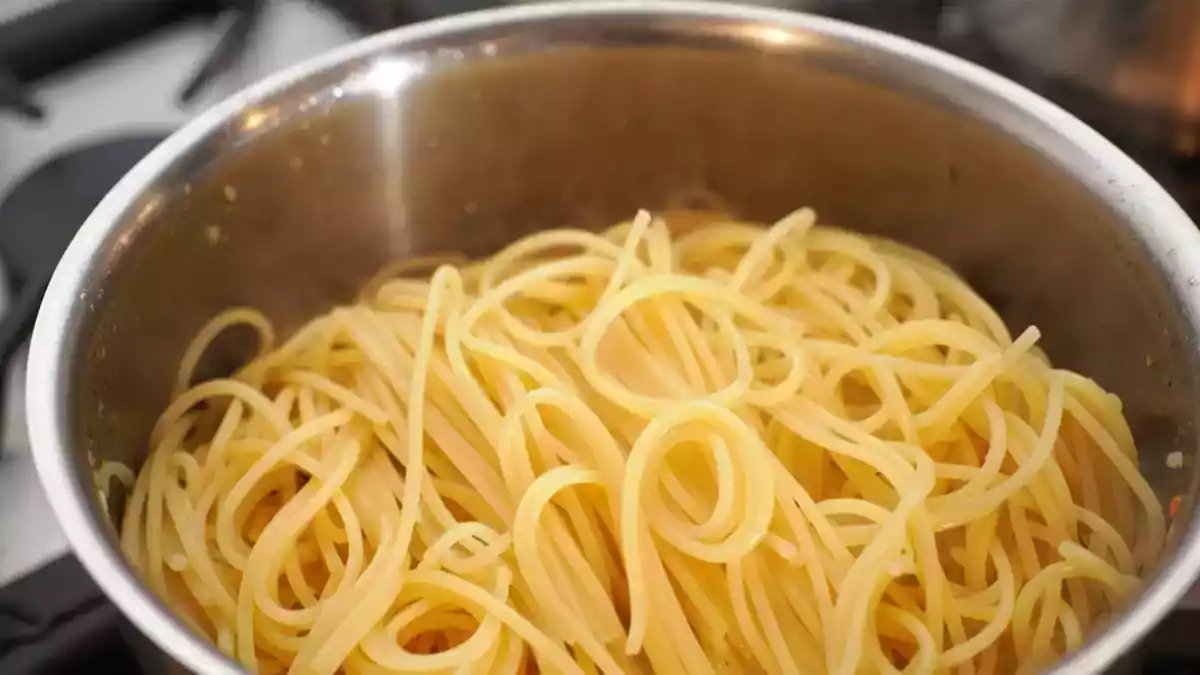Perfect pasta: the 6 golden rules to keep it from sticking

How many times have you found yourself draining pasta and finding it sticky, broken or too soft? Cooking it well is no accident, but the result of small tricks that make all the difference. In this article you will discover the golden rules to prevent sticking and get perfect pasta every time, just as Italian tradition dictates.
1. The importance of water: how much to use and why
One of the most common mistakes is to use too little water during cooking. The dough needs room to move freely-otherwise, the starch released during cooking will concentrate and make the pieces stick together.
Basic rule:
- 1 liter (34 fl oz) of water for every 100 grams (3.5 oz) of pasta.
A pot that is too small or has too little water slows boiling and causes the pasta to stick easily, even when stirred. Better to overdo the water than to risk a mess.
2. The crucial move: mix, immediately and often
One of the most underestimated steps is stirring in the first few moments. In the first 30 to 60 seconds, the dough releases more starch and tends to stick immediately if left still.
Recommended technique:
- Stir immediately after pouring the dough.
- Keep stirring every 1-2 minutes, especially with long shapes.
For long pasta such as spaghetti, linguini or fettuccine, it is essential to let them "sink" into the water and then gently distribute. Use a fork or kitchen tongs.
3. Oil in the water? No, thank you
A widely held belief is that adding oil to the cooking water prevents the pasta from sticking. A myth that needs to be debunked.
Because it is unnecessary (and even harmful):
- The oil floats on the water and does not come in contact with the pasta.
- It makes the surface slippery, hindering the absorption of the sauce.
If you really want to use oil, do so only after draining the pasta, if you plan to let it cool before dressing it (for example, for a pasta salad).
4. Choose the right pot: size and materials matter
To cook pasta well, the choice of pot makes all the difference. Not only by capacity, but also by materials and practicality.
Choose a pot:
- Tall and large, to hold plenty of water.
- Thick-bottomed, to maintain temperature.
- Wide if cooking long pasta (to avoid breakage).
5. Boiling must be brisk and steady
After throwing in the pasta, many people lower the flame thinking they can better control the cooking. Nothing could be more wrong. The water must continue to boil vigorously, to:
- Prevent the pasta from settling to the bottom.
- Encourage natural movement of the pieces.
If the boil drops, cover the pot briefly to resume it, then continue cooking with the pot uncovered, with a flame high enough to maintain a boil.
6. Respect the cooking time
Cooking is one of the most delicate moments in pasta preparation. Exceeding even slightly the indicated minutes can compromise texture, taste and digestibility. Overcooked pasta not only loses bite but also tends to stick, making the dish less inviting. This is why adherence to cooking time is critical.
What happens if you cook pasta too long:
- It releases too much starch: the water becomes thick and sticky, encouraging the pasta to stick together.
- It loses its texture: it becomes soft and breaks easily, ruining the texture of the dish.
- It absorbs too much sauce: you risk getting an untied pasta, with the sauce "disappearing".
Cook the pasta al dente and drain it 1-2 minutes before the maximum time indicated on the package. This way it will retain body, flavor and won't stick!
In Brief
Cooking pasta to perfection depends not only on time or temperature, but requires attention, care and awareness. By following six simple but effective rules, you can avoid the most common mistakes and bring to the table a pasta dish that is always up to par: well-cooked, flavorful and capable of enhancing every sauce, in full respect of Italian tradition.
Because, in the end, the true art of pasta is made of details, small daily gestures repeated with passion.
 Eva Alberghetti
Eva Alberghetti
Comments
giovanni_f2025
Well explained ! thanks